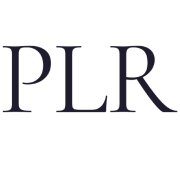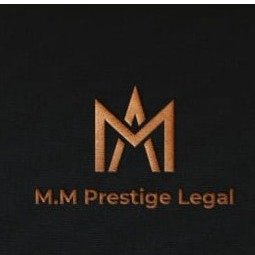Best Drunk Driving Lawyers in Pretoria
Share your needs with us, get contacted by law firms.
Free. Takes 2 min.
List of the best lawyers in Pretoria, South Africa
About Drunk Driving Law in Pretoria, South Africa
Drunk driving, also known as driving under the influence (DUI), is a severe offense in Pretoria, South Africa. It involves operating a vehicle with a blood alcohol content (BAC) exceeding the legal limit. The laws are stringent in intent to reduce road accidents and enhance public safety. In South Africa, the permissible BAC level is 0.05% for ordinary drivers and 0.02% for professional drivers. Being caught over the legal limit can result in hefty fines, license suspension, or even imprisonment, highlighting the importance of understanding these regulations.
Why You May Need a Lawyer
Encountering a drunk driving charge in Pretoria can have significant legal consequences, and having proper legal representation can greatly affect the outcome. Here are some common situations where legal help is necessary:
- If you're facing criminal charges that could lead to heavy fines or imprisonment.
- If your driver's license is at risk of being suspended or revoked.
- If there are additional charges like reckless driving or property damage.
- If you're unfamiliar with the legal system and need guidance to navigate through it effectively.
- If you wish to contest the evidence or breathalyzer results presented against you.
Local Laws Overview
In Pretoria, the approach towards drunk driving is informed by both national legislation and local enforcement policies. Key laws impacting DUI charges include:
- Road Traffic Act: Outlines the legal BAC limits and penalties for violations.
- National Road Traffic Amendment Act: Provides regulations on testing procedures and evidentiary requirements.
- Penalties: Penalties can range from fines, imprisonment (up to 6 years), license suspension, and criminal records.
- Zero Tolerance for Minors: South Africa maintains a zero-tolerance policy for drivers under 18.
- Enforcement: The use of roadblocks and random breath testing by law enforcement authorities is common.
Frequently Asked Questions
What happens if I'm pulled over and suspected of drunk driving?
You will likely be asked to take a breathalyzer test. If you refuse, you may be detained, and further tests may be administered at a police station.
What are my rights during a breathalyzer test?
You have the right to request a blood test if you dispute the breathalyzer results. However, refusing a breathalyzer test without reasonable grounds can lead to arrest.
How can a DUI affect my future?
Convictions can lead to a criminal record, which might hinder employment opportunities and affect international travel.
What are the costs associated with a DUI conviction?
Costs can include fines, increased insurance premiums, legal fees, and potentially mandatory rehabilitation programs.
Is it possible to reduce DUI charges?
An experienced lawyer might negotiate for lesser charges or alternative sentences, depending on the case particulars and evidence.
Can I challenge the accuracy of a breathalyzer test?
Yes, you can challenge it, especially if there are indications of improper equipment calibration or handling errors during the test.
What should I do immediately after a DUI arrest?
Consult a legal professional immediately to understand your rights and begin building a defense strategy.
How does a DUI conviction impact my driver's license?
Your license can be suspended immediately after arrest and face further suspension if convicted, usually for 6-12 months or more.
Does South Africa have programs for first-time DUI offenders?
There are diversion programs available for first-time offenders to educate and prevent future incidents.
Can a DUI be expunged from my record?
Under certain conditions and after a set period, an expungement might be possible, but legal advice is needed to explore this option.
Additional Resources
If you need further information or assistance, consider these resources:
- South African National Road Traffic Act
- Arrive Alive - Road Safety Information Portal
- Legal Aid South Africa
- South African Police Service (SAPS)
- Department of Transport South Africa
Next Steps
If you need legal assistance concerning a drunk driving charge in Pretoria, consider the following steps:
- Contact a lawyer specializing in DUI cases for a consultation to discuss your specific situation.
- Gather any evidence or documentation related to your case, such as breathalyzer results and arrest records.
- Follow advisory from your legal counsel on court dates, plea bargains, and potential defenses.
- Consider participating in educational programs that may positively influence court perceptions and sentencing outcomes.
Regardless of circumstances, acting swiftly and informedly can significantly impact the resolution of your case.
Lawzana helps you find the best lawyers and law firms in Pretoria through a curated and pre-screened list of qualified legal professionals. Our platform offers rankings and detailed profiles of attorneys and law firms, allowing you to compare based on practice areas, including Drunk Driving, experience, and client feedback.
Each profile includes a description of the firm's areas of practice, client reviews, team members and partners, year of establishment, spoken languages, office locations, contact information, social media presence, and any published articles or resources. Most firms on our platform speak English and are experienced in both local and international legal matters.
Get a quote from top-rated law firms in Pretoria, South Africa — quickly, securely, and without unnecessary hassle.
Disclaimer:
The information provided on this page is for general informational purposes only and does not constitute legal advice. While we strive to ensure the accuracy and relevance of the content, legal information may change over time, and interpretations of the law can vary. You should always consult with a qualified legal professional for advice specific to your situation.
We disclaim all liability for actions taken or not taken based on the content of this page. If you believe any information is incorrect or outdated, please contact us, and we will review and update it where appropriate.
















